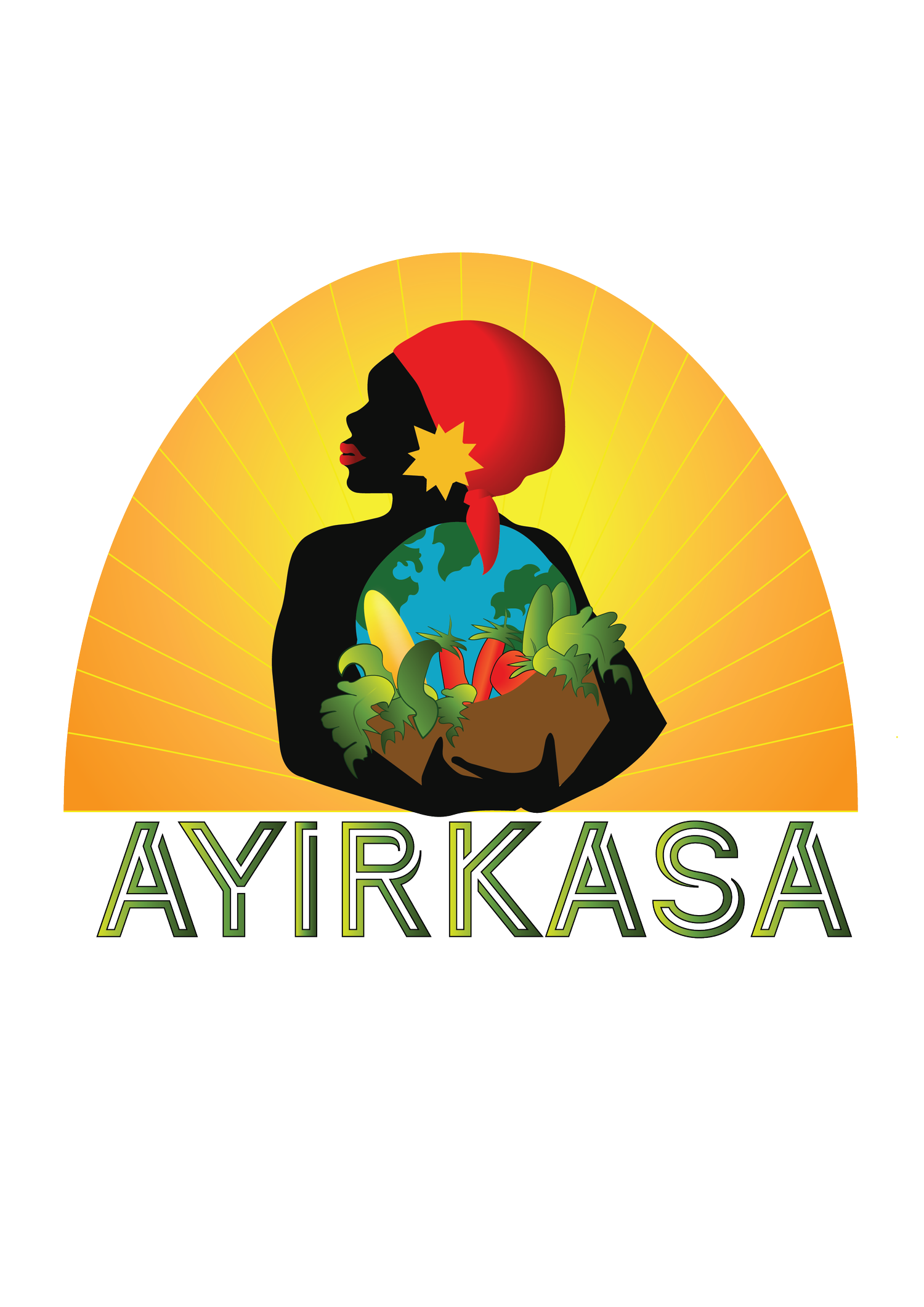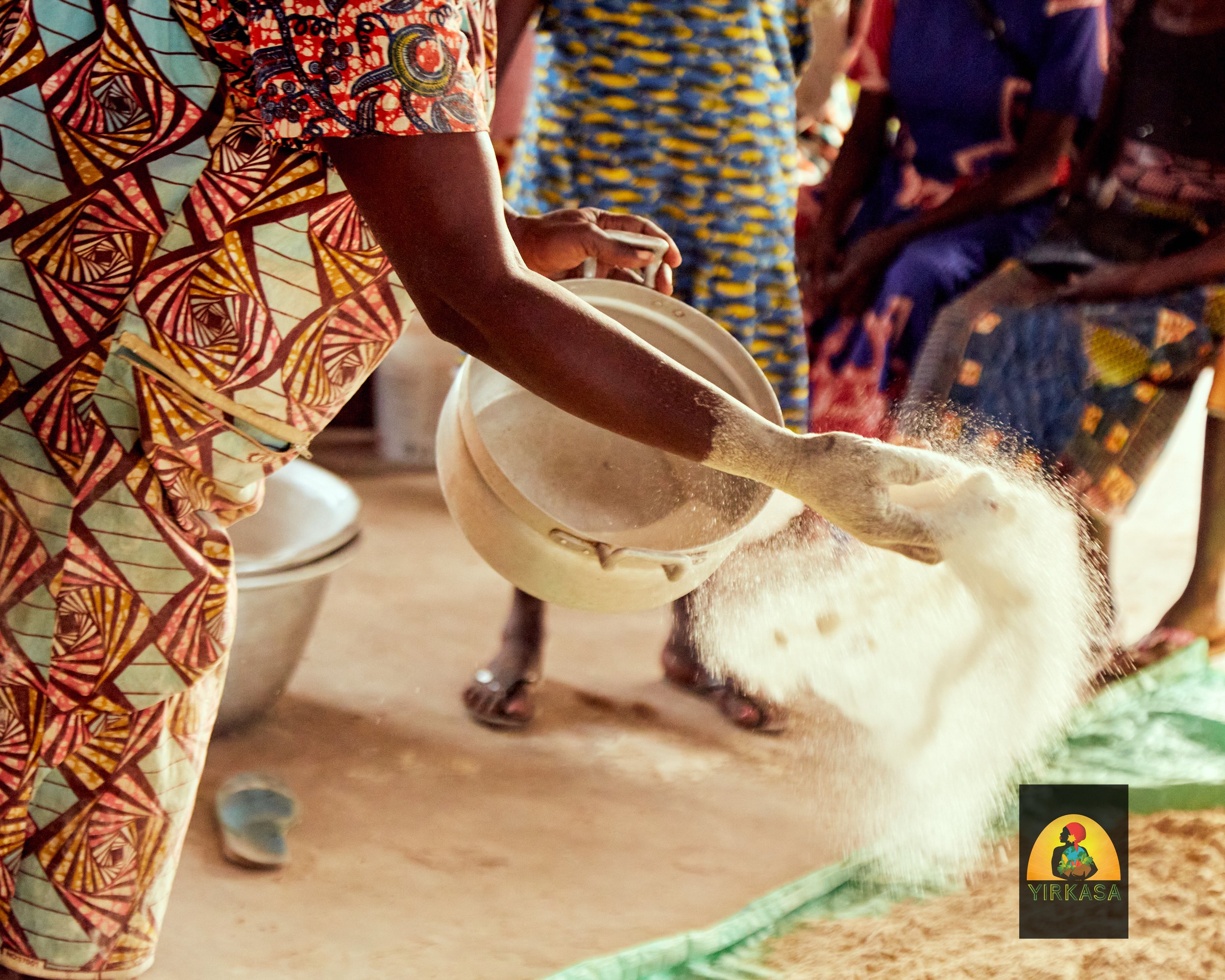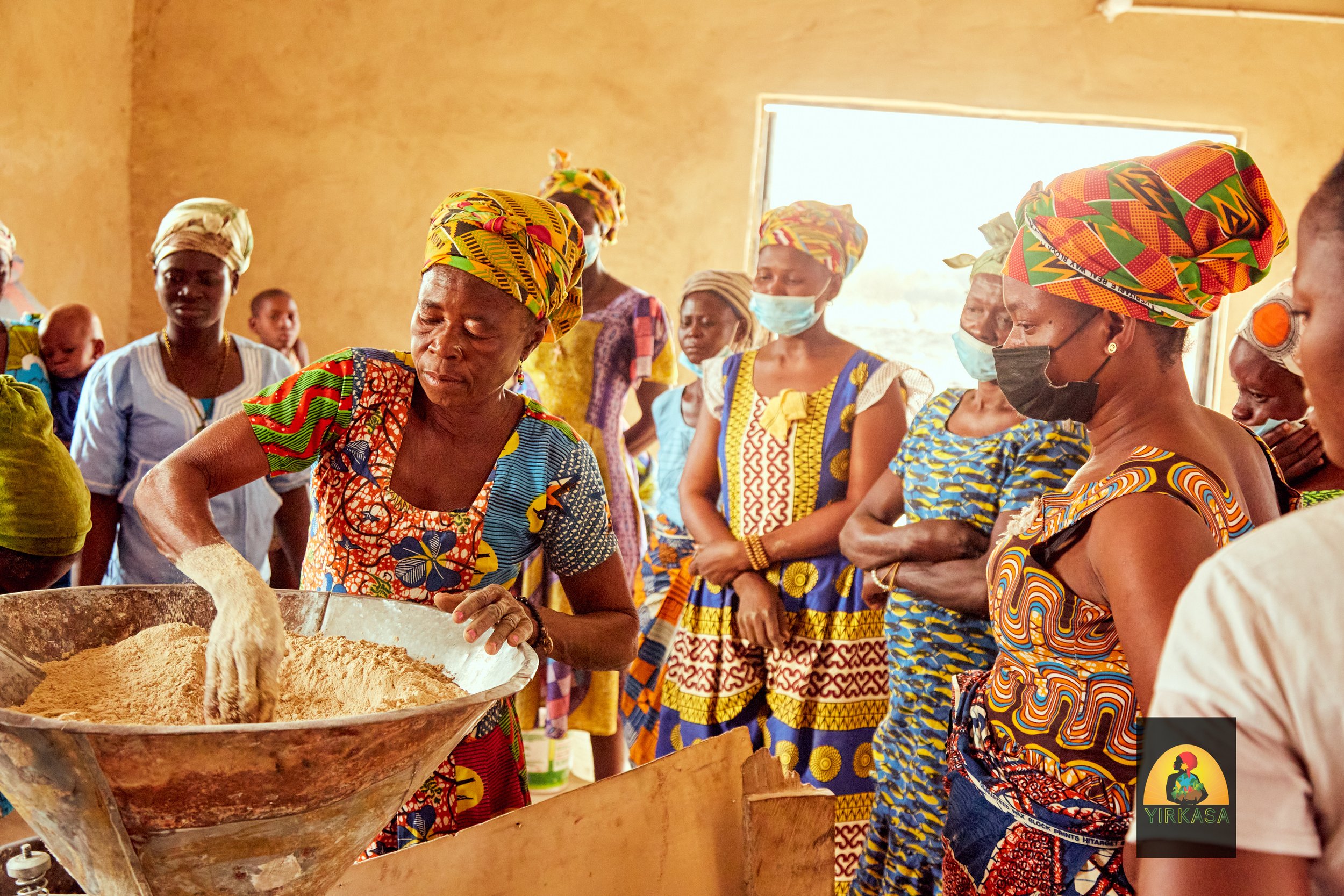Get to know our story.
About Ayirkasa
Ayirkasa is a Women-led Ghanaian registered social enterprise based in Nandom, Ghana.
Women in our homeland of Nandom, in Northwest Ghana, experience marginalization in almost every part of society, yet we form the majority of the labour force, especially for agricultural production and the food market.
As an effort to find a solution to these issues, Ayirkasa was born. Our goal is to provide reliable and safe ways for women in our communities to be financially secure while also taking care of our environment.
Ayirkasa promotes agroecology as a climate change mitigation strategy. We believe that as we conserve our ecology, use our indigenous knowledge, and prioritize care for our Mother Earth, we work towards environmental and financial sustainability for present and future generations.
Our goal is to feed our communities with our local and organic products while also providing alternative income sources for women. The take-over of Western based companies such as Monsanto has been detrimental to our people and environment alike. The mono-cropping methods, and use of other unhealthy agronomic practices such as cutting down essential trees to create space for mono-cropping has lead to the destruction of our vegetation and ecology, leaving local people and their environments exploited and impoverished.
Ayirkasa was created as a way to combat this vicious cycle. We believe that by creating a network of women who share vital knowledge, creating a community banking program, uplifting and supporting each other emotionally and financially, and focusing on sustainable practices we will be on the road to becoming more autonomous individuals which will in turn create a thriving community.
Our Vision.
Our vision is to establish a processing centre with simple and efficient technology, such as grinding mills, a bore hole, a drying space, etc. It will be a cooperative space where women from the community can come with their produce to process and package it in a clean, safe, and supportive environment. Along with a space to make their wares, women beneficiaries will be supplied with capital, capacity strengthening, and other resources to enable them to produce for their target market. Through the cooperative model, a portion of their capital will be reinvested into the centre, expanding the network of support throughout the community.
The centre will offer a space for women to share the knowledge they’ve accumulated and pass on crucial information on various products and processing techniques. Not only will it be a place to learn, the centre will provide a coping strategy for women during this era of the covid-19 pandemic, with it's numerous effects.
About the Creator of Ayirkasa
My name is Freda Pigru. I am a young woman from Nandom in the Upper West region of Ghana. I am an entrepreneur, farmer, and psychology student at the University of Ghana. I have a background in journalism and community radio. I have worked as a volunteer, producer, and manager at Radio Freed (a community radio station) in Nandom (2014 to 2020).
I currently work as a field officer for “The Center for Indigenous Knowledge and Organizational Development” (CIKOD) where I plan, implement, evaluate, and report on agroecology and climate change related projects in various communities. I also lead and facilitate community-based women groups and youth empowerment programs in Nandom.
I am the creator and facilitator of a Women-led local organic food production enterprise in Nandom called Ayirkasa.
Dawa Dawa
The Dawa Dawa seed is indigenous to Nandom and is used as a spice in many traditional dishes. The seeds add a rich flavor to soups and stews and are a staple in many West African households. Our women are being trained on the best harvesting and fermentation practices to create the taste that reminds so many of home.







